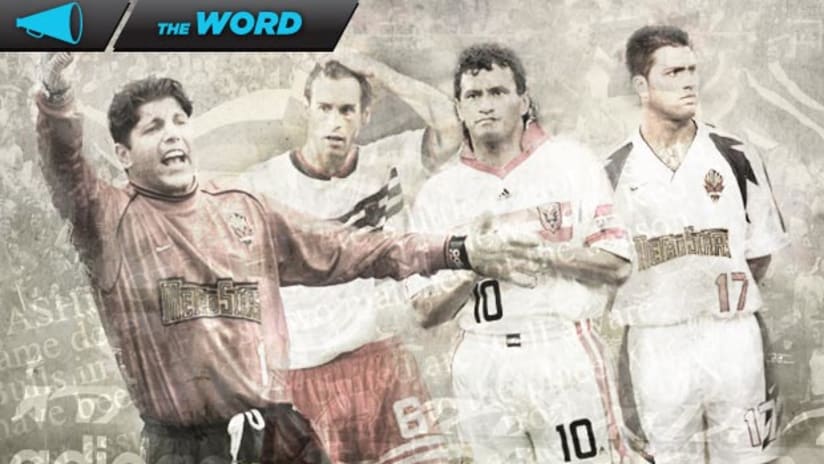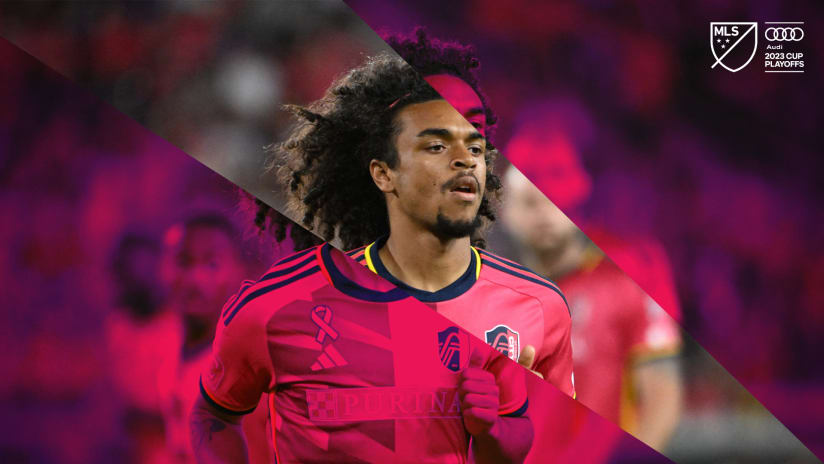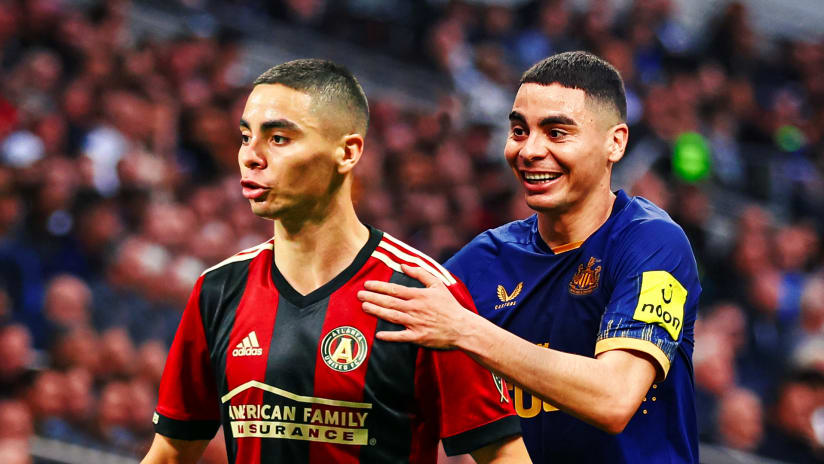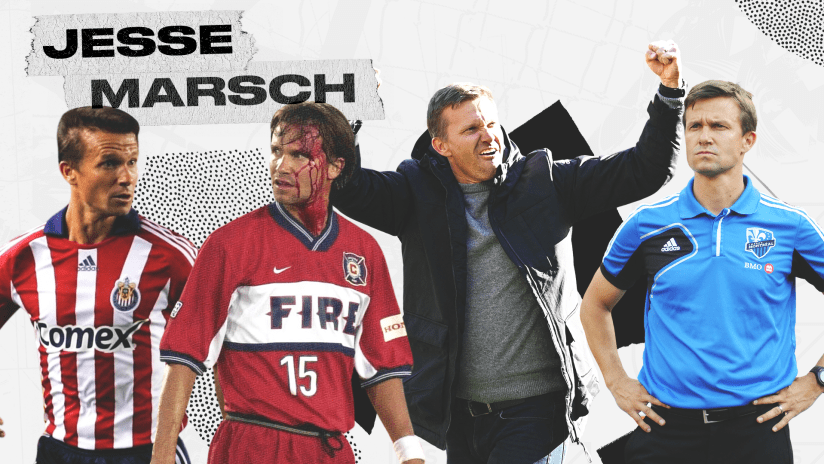BY THE TIME THEY MET for the seventh time in 1996, the rivalry felt 100 years old. When Tony Meola left the team huddle to take his spot in the goal, he took a look toward the upper deck of RFK Stadium and saw several hundred people cheering for his team.
"I'm guessing 500 had made the trip down from Jersey," Meola recalls. "And they stuck them in the upper deck. And for a few seconds I could hear them. They were really loud."
Then they were drowned out.
"I felt the ground start to move" Meola remembers. "It was 'The Barra Brava.'"
THE DATE WAS OCTOBER 2, 1996. The playoff format in Major League Soccer's inaugural season called for a best-of-three, with all ties decided by the old MLS Shootout.
Two things were known for certain on this night, as Meola said one last pregame prayer. One was that the MetroStars would not meet D.C. United again in 1996. Someone was moving on and someone was going home. The other thing that was established was that MLS had its first truly serious rivalry, its roots formed in the first six games.
Seventeen years later, little has changed. The MetroStars changed their name to the Red Bulls, but their fans still sing, regardless of the opponent, "We hate D.C." In the nation's capital, D.C. fans throw gas on the fire with the old saw about who's got all the trophies.
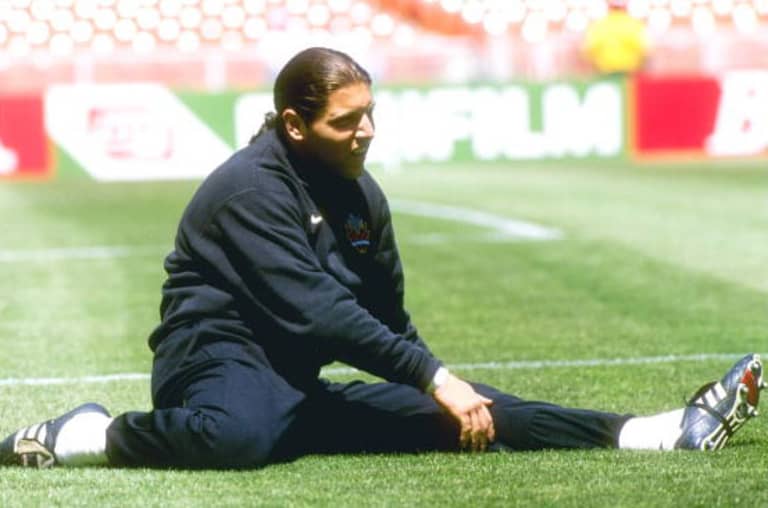
New York MetroStars goalkeeper Tony Meola stretches before a game against D.C. United in May 1996. Getty Images
"The hate was immediate between the two fan groups," Meola says. "And I've spoken to John Harkes about it from time to time through the years, and we have no idea why."
Harkes, D.C. United's first captain, agrees, but adds: "I think from a D.C. perspective, we figured New York was going to be the measuring stick for the league that first year. They had Tony and Tab Ramos and Peter Vermes, and Roberto Donadoni. From Day 1 at our camp, we said, 'If we get one thing right as a club, let's be able to beat New York.'"
The four regular-season meetings set the tone on the field and in the stands. A 1-1 draw at RFK, won by the MetroStars in a shootout got things under way, though both teams would undergo major overhauls before the season was over. For one thing, MetroStars coach Eddie Firmani was 10 days away from becoming the first coach in league history to lose his job. For another, D.C. was in the process of overhauling much of its roster. That both teams were struggling out of the gate gave the game an immediate edge.
"I remember the games were pretty chippy from the start," says Harkes. "The quality of play may not have been the best, but the competitiveness was always there."
Harkes scored the first goal in the history of the rivalry in the 11th minute, but Giovanni Savarese, who would score the first eight goals in Metro history, equalized in the 64th. A recurring theme for the season was set in place. The games always had odd endings.
"Harkesy tried to chip me on their last shootout," Meola says. "And kicked it right to me."
The two teams were never separated by more than a goal during any of the regular-season meetings. D.C. United won, 2-1 on May 30, at Giants Stadium, and won the third meeting, 3-2, also in the Meadowlands, with Harkes putting another one past his old high school friend Meola. The MetroStars won the fourth regular-season match in a shootout at RFK and learned two weeks later they'd be playing D.C. United in the playoffs.
After each game, the losing team always had a beef about a missed call or an "unfair result." Neither Carlos Queiroz, the well-traveled Portuguese coach who had replaced Firmani, or D.C. coach Bruce Arena gave an inch when it came to protecting their players.
That wasn't about to change in the playoffs.
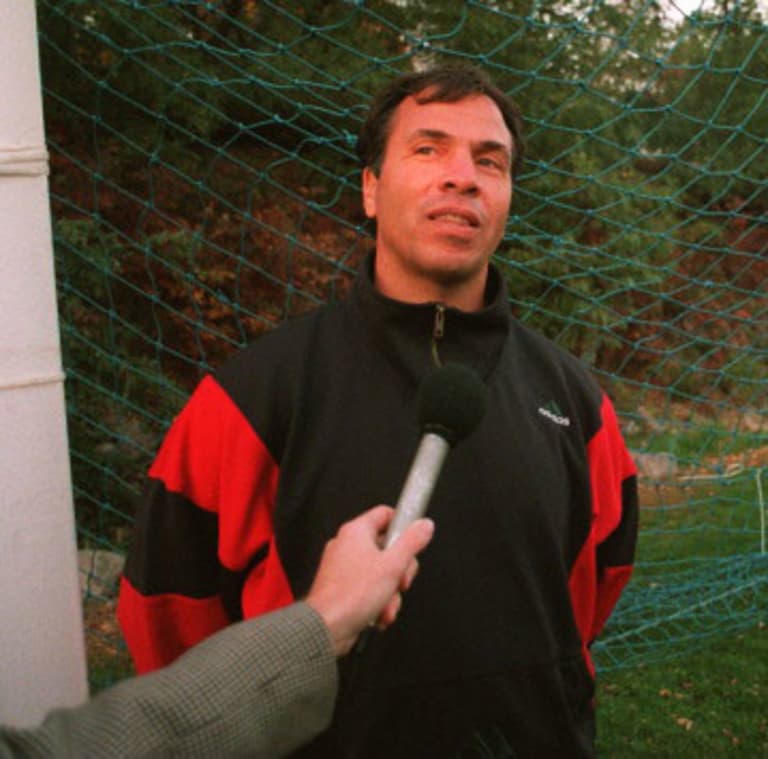
D.C. United head coach Bruce Arena answers a reporter's question during the 1996 MLS playoffs. Getty Images
THE SERIES STARTED on a miserable night in East Rutherford. Rain poured down on the Giants Stadium Astroturf, setting the stage for a chaotic Game 1. The teams traded early goals before Jaime Moreno put D.C. ahead 2-1 in the 56th minute. Savarese came off the bench to tie the game in the 74th minute, tugging the shirt of rookie defender Eddie Pope to gain just enough space to touch the ball into the net from close range.
"Eddie was furious about that play," Harkes says. "But that was a vintage Savarese goal."
The shootout went to the 11th round when things got really strange. The MetroStars appeared to be out of shooters because Vermes had injured his shin during the game and was not on their original list of shooters. When he stepped up to take his turn, D.C. claimed he was shooting out of order and, therefore, a miss should be recorded. Chaos ensued on the field before Vermes limped out to take his shot, which he made. The MetroStars were winners of Game 1 and heading to D.C. needing to win just one more.
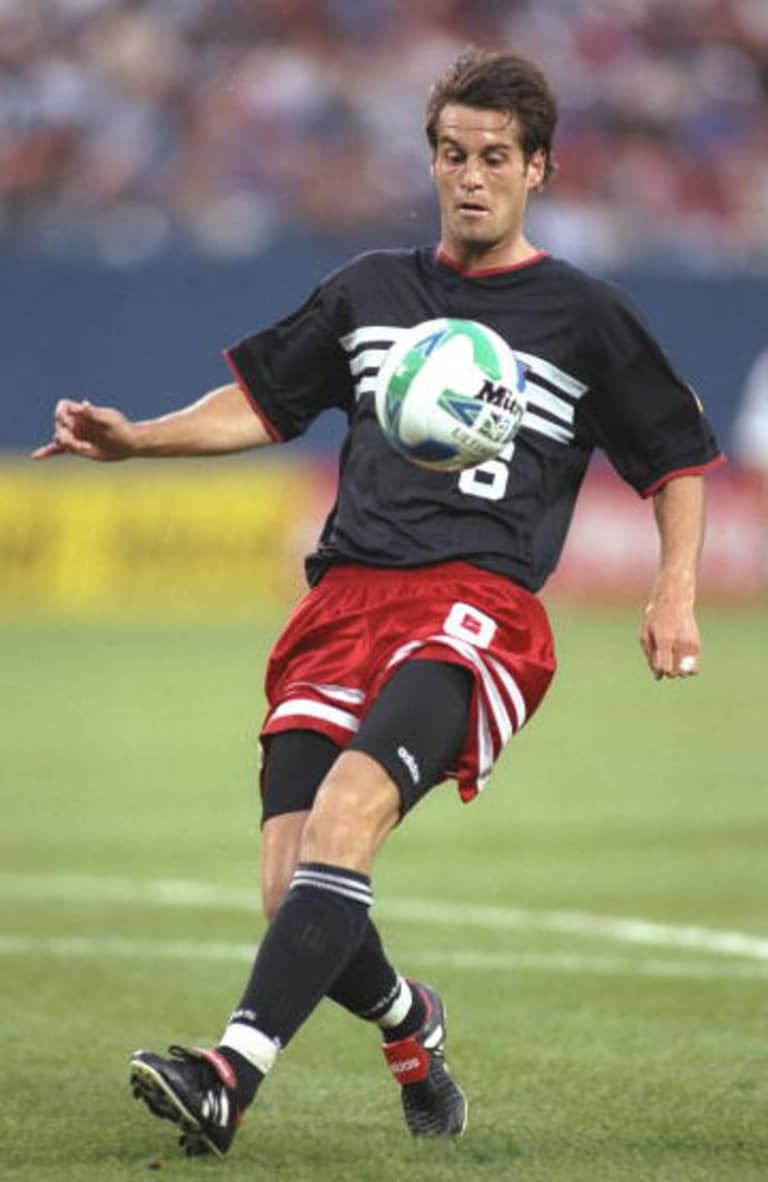
D.C. United midfielder John Harkes: "From Day One at our camp, we said, 'If we get one thing right as a club, let's be able to beat New York.'" Getty Images
By now, you surely know the MetroStars couldn't finish off United. Game 2 was a defensive struggle decided in the 72nd minute when Marco Etcheverry beat Meola with one of the few right-footed goals of his career. Game 3 was one for the ages.
For starters, there was the atmosphere, which Meola already described.
"It was just incredible to see so many people care so much about something that was so new," Meola says. "We'd been around as teams for only a few months, but the passion was at a level not many of us had ever seen before. You felt so connected to the fans."
Says Harkes, "It was good for the league. That first year, there needed to be some type of derby match. I thought it would take time to cultivate that, but it happened really fast. By the time we played that third playoff game, it really felt like El Clásico or something."
D.C. United grabbed a deserved lead on a goal by substitute striker Steve Rammel in the 65th minute, but the MetroStars owned most of the final 25 minutes. Late-season acquistion Antony de Ávila, the diminutive Colombian striker known as El Pitufo, ("The Smurf"), tied the game in the 86th minute and had a golden opportunity to win it for the Metros a minute later, but pushed a shot wide of an empty net.
EVERYONE IN RFK KNEW it would come down to one last shootout. But in the 89th minute, Etcheverry dribbled into the box and Meola remembers thinking to himself, "No!"
Meola saw teammate Rob Johnson sliding. He saw Etcheverry go down. Penalty. Raúl Díaz Arce stepped up to the spot, placed a shot in the corner, and D.C. had won the series.
"In some ways, it was a shocking way for it to end," Meola says. "But in some ways, you had a feeling that something crazy would happen. Those games were all crazy."
And the start of something big.
THE WORD is MLSsoccer.com's regular long-form series focusing on the biggest topics and most intriguing personalities in North American soccer.

